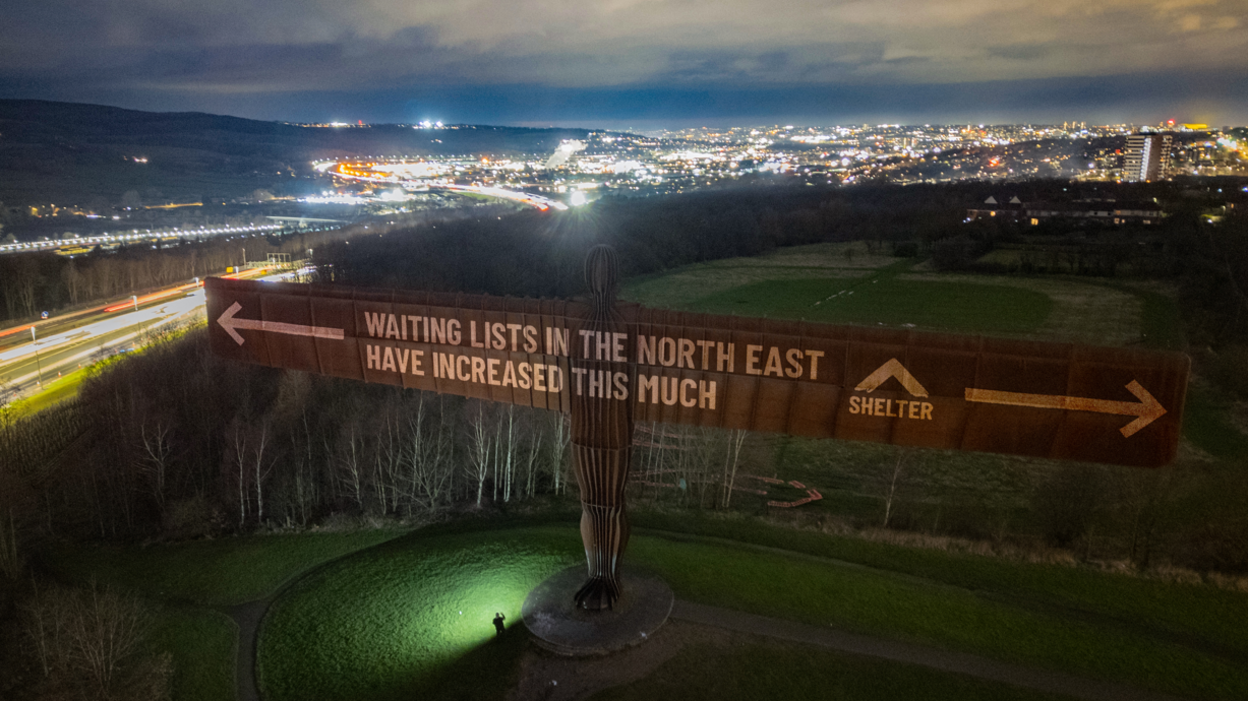Social housing tenants 'fed up' of black mould
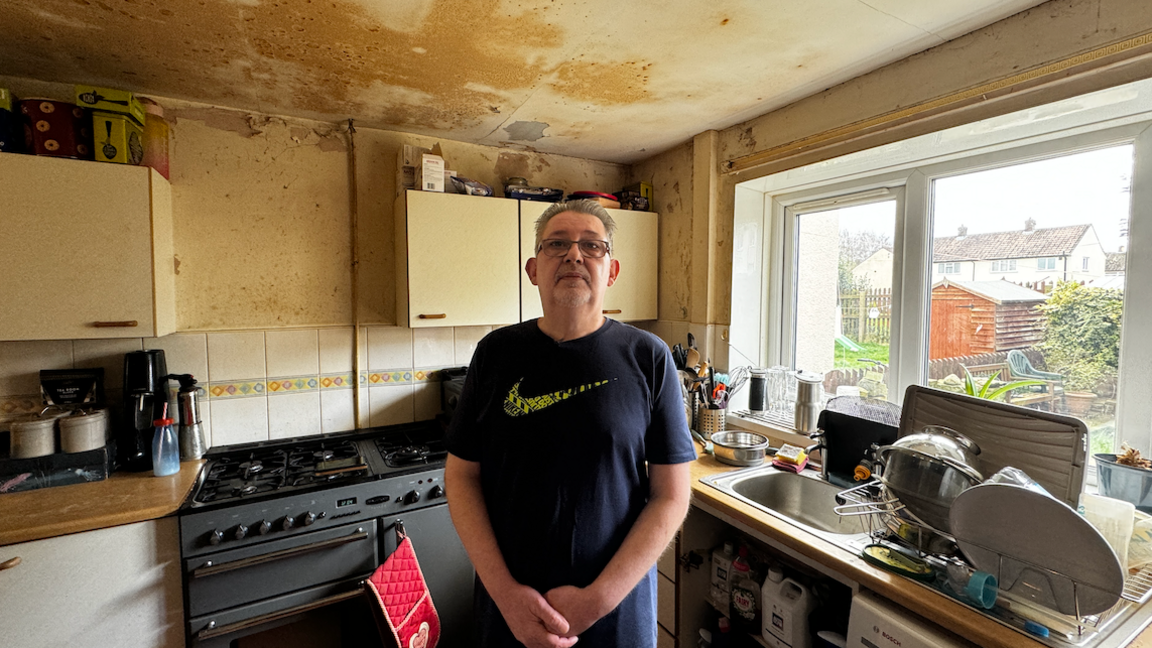
Stuart Ivison says he is "embarrassed" to bring visitors to his Gentoo home
- Published
Some residents living in social housing on Wearside say their health is “deteriorating” as black mould and damp blights their homes.
Tenants renting properties managed by Gentoo in Sunderland and Washington claim complaints are not being resolved, leading to "poor living conditions".
Health charities have warned black mould spores pose a "serious risk" to individuals.
Chief executive officer Louise Bassett said Gentoo was "committed to providing safe and decent homes" and has apologised for where it had "not got things right".
More than 3,000 people have joined a social media page set up by residents claiming to be affected by damp and mould in Gentoo homes in the city.
A petition for the association to be stripped of its contract to look after social housing in the area has also been started.
It comes as the housing association intends to increase the cost of rent by up to 7.7%, external, because of what it said was the "rising cost" to maintain properties.
'Constant fight'
Stuart Ivison, who lives in Washington, near Sunderland, told the BBC areas of his home were plagued with the fungus, making parts of it unusable.
He said black mould had taken over walls and cupboards in the kitchen, while there was also mould in the bedroom and bathroom.
"I can leave the house, [I'm] perfectly fine outside, but once I come back in, within 10 minutes I have a blocked nose [and] can feel an itch at the back of my throat," he said.
"It’s a constant fight, and we’re powerless to do anything about it."
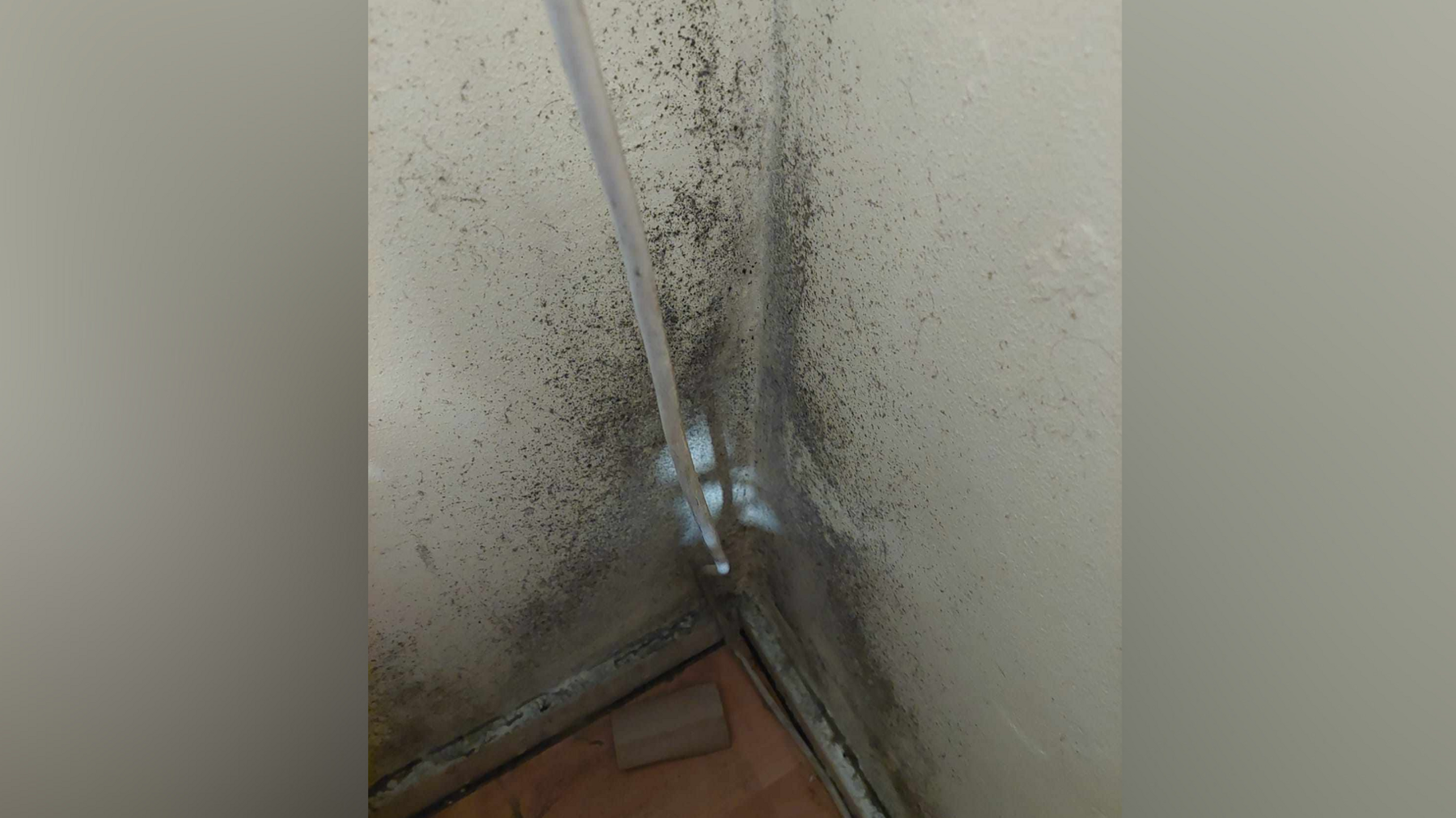
Mr Ivison shared a previous picture of black mould, which he said often reappeared in the home despite attempts to clean it
Mr Ivison said the housing association had not investigated the source of the black mould, which he believed was due to poor insulation and gaps around external doors.
"Gentoo came out once and told us to open our windows to keep a draft coming through and that would stop it, but it doesn’t, it has no effect at all."
Mr Ivison's kitchen ceiling - which he said was bowing and prone to mould growth - has not been repaired after a leak in the bathroom upstairs three years ago, he said.
He said he was "embarrassed" to bring visitors to his home because of its condition.
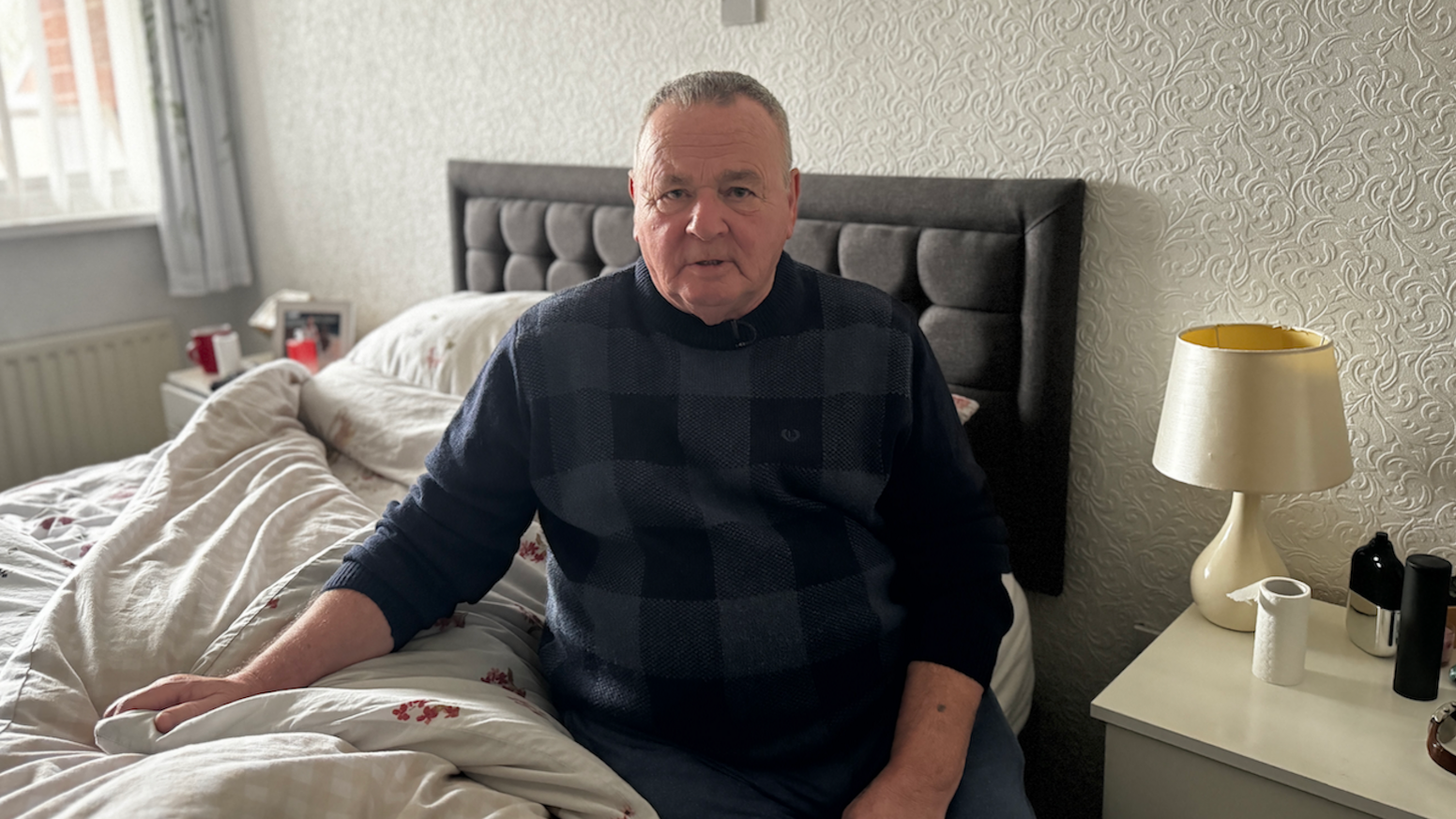
Robert Fuller says he sleeps with three duvets because of a lack of insulation
Robert Fuller, who has lived in Sunderland's Mill Hill since 2021, said he struggled to get Gentoo to fix mould issues and an apparent lack of insulation.
He said he had to sleep under multiple duvets at night because "cold air swirl[ed] around the bedroom", despite having the heating turned on and windows and doors closed.
What does an unheated room do to your body?
- Published19 November 2022
“I have three quilts on top of my bed, an 18-tog, 16-tog and another one on top of that, I also have to have an electric heater on at night. It's awful.
"[When] it gets really bad and the cold air hurts my hands, I wear gloves."
Mr Fuller, who lives alone after his wife, Pauline, died from a brain tumour, said his rheumatoid arthritis had "worsened" since moving there.
He said Gentoo had come and "had a look", but he felt their response was unsatisfactory.
"I am nearly 70 and I want to be able go to bed comfortable without any cold draughts," he said. "Either that, [or] move me into a warmer property.
“I just want a warm home, but I don’t think you’ll get that with Gentoo.”
Gentoo 'determined to listen'
In response, Gentoo's chief executive officer Louise Bassett said she was "very sorry to hear of the issues" raised by tenants to the BBC.
"As soon as we were made aware of these issues, we reached out to Mr Ivison and Mr Fuller to apologise and to rectify the issues in their homes," she said.
Ms Bassett said Gentoo had agreed to install a new kitchen in Mr Ivison's home and had been attempting to do this since 2022, but she said he had refused the work because he was worried about the disruption it would cause.
The company had since offered to replace his bathroom, she added.
She said the housing group had also visited Mr Fuller ahead of plans to "fill any draught holes", while topping up loft insulation and applying thermal paint to his home.
Ms Bassett added that "damp and mould" was a "challenge across the housing sector", which could have "a significant impact on people's lives".
She said last year Gentoo had set up a dedicated team to ensure customers were "supported as quickly as possible with any issues", and urged tenants with concerns to contact them directly.
"Our customers deserve the best standards of service from Gentoo and in this situation we have not got things right," she said.
"We are determined to listen and act on feedback from our customers and will ensure we learn from this situation."
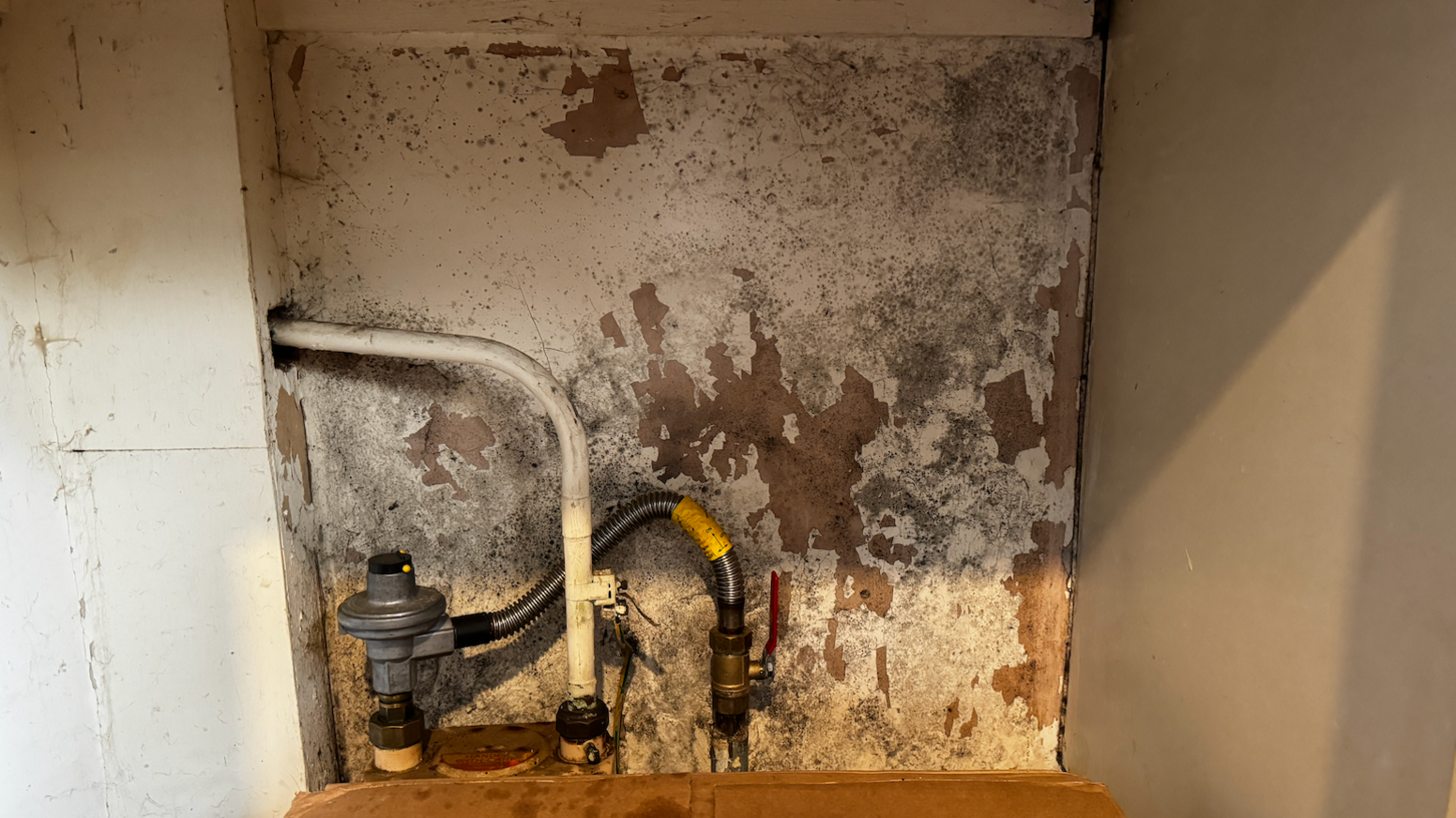
Stuart Ivison says he has spent hundreds of cleaning materials without any success
Housing Secretary Michael Gove earlier this year said new legislation - known as Awaab's Law - would force social housing landlords to carry out repairs more quickly.
John Hume, chief executive of the People's Health Trust, said millions of people across England faced "damp and mould", causing a "myriad” of physical and mental health problems.
He said the government needed to ensure any new legislation was actively "enforced" to guarantee that social housing landlords resolved such issues in a timely manner.
The Regulator of Social Housing (RSH) said while it was unable to comment on individual cases, it was "clear that social landlords need to provide safe and decent homes for their tenants".
"They must listen to their tenants’ complaints and fix problems promptly when required, including those relating to damp and mould," a spokesperson added.
Follow BBC Sunderland on X (formerly Twitter), external, Facebook, external and Instagram, external. Send your story ideas to northeastandcumbria@bbc.co.uk.
- Published13 February
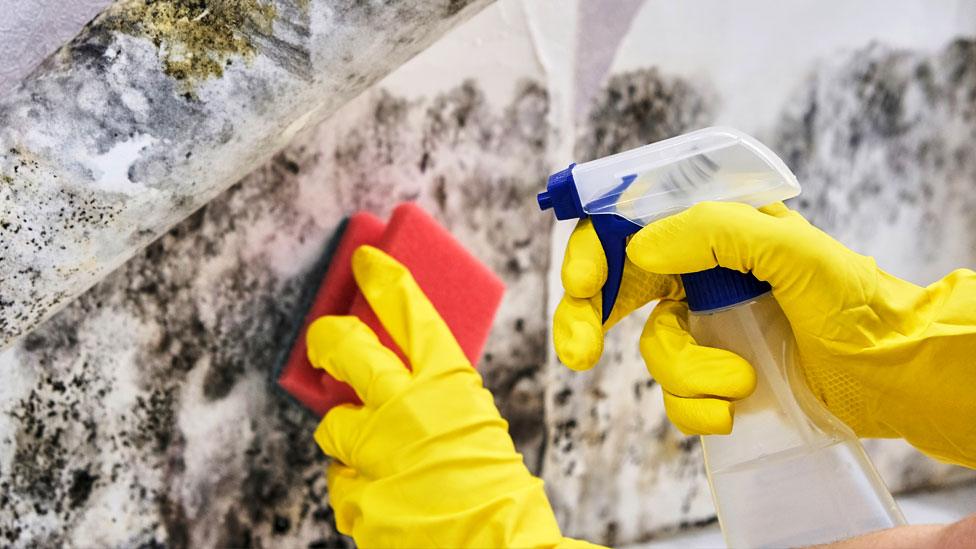
- Published26 February 2024
